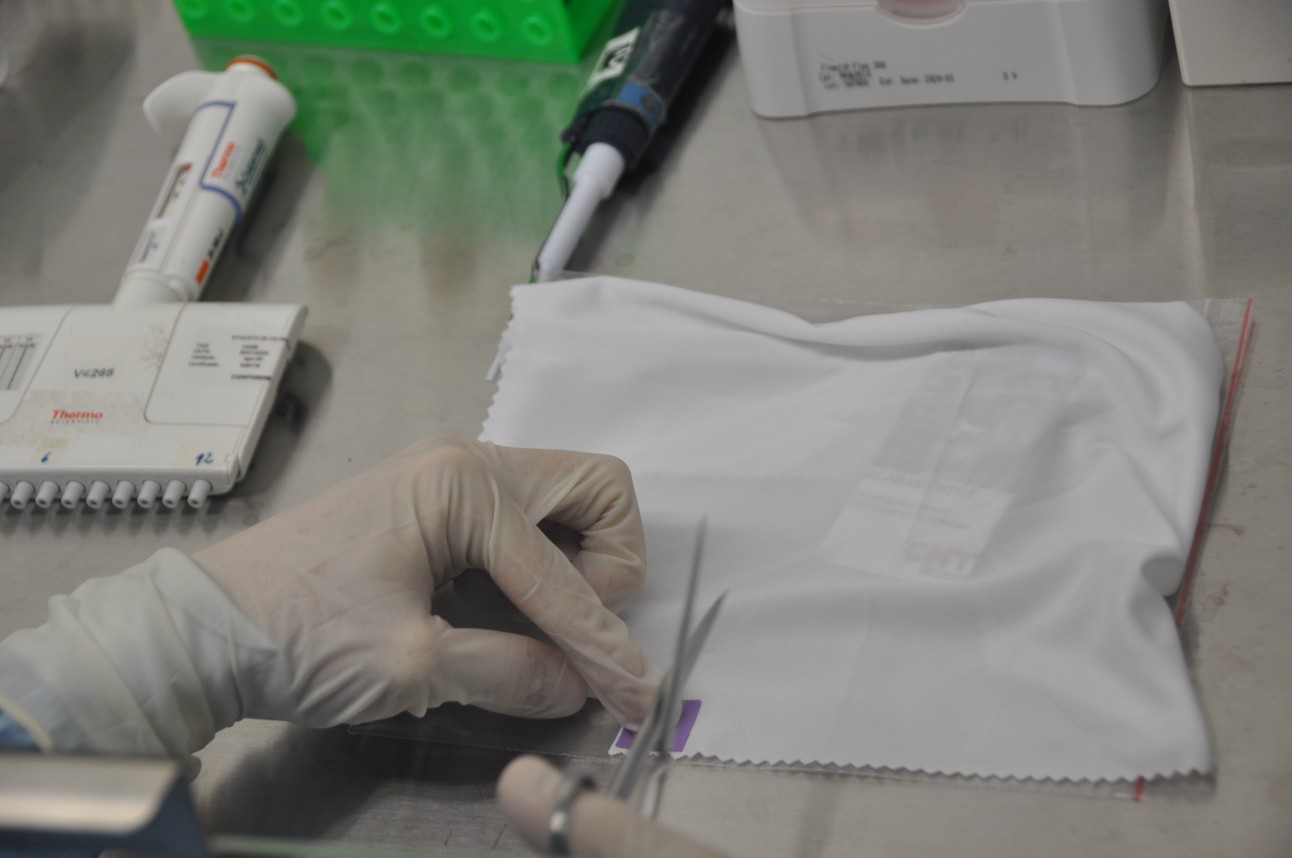RIO DE JANEIRO, BRAZIL – Tests performed at Bio-Manguinhos’ Virological Technology Laboratory (LATEV) confirmed the efficacy against the SARS-COV-2 coronavirus of a fabric with antiviral properties.

Financed by the Senai Innovation Call for Industry, the project is a partnership between the Santa Catarina company Diklatex and the Center for Chemical and Textile Industry Technology (Senai/Cetiqt).
The results were announced during a live broadcast yesterday afternoon, July 22nd. According to the researchers, one of the tested preparations succeeded in deactivating 99.9 percent of the viral particles of the novel coronavirus and of the measles and mumps viruses. The deactivation of the agent causing the Covid-19 was achieved in only one minute after the microorganism came into contact with the mask.
The work to develop the fabric began in March and involves a team of microbiologists, doctors, and engineers. The tests were conducted in Bio-Manguinhos, at the Oswaldo Cruz Foundation (Fiocruz), given the level of safety required for the research.
The head of LATEV, Sheila Maria Barbosa de Lima, emphasized that the research is part of Fiocruz’s effort to face one of the greatest challenges in its history in the year it celebrates its 120th anniversary. “Our technological development here works on the vaccines, diagnostic kits, and drugs front. This fabric part is totally new to us.”
The research first tested the fabrics’ efficacy on the viruses causing measles and mumps, which require NB-2 safety level laboratories. The two antigens were chosen for their molecular similarities and in form of transmission with the SARS-CoV-2. With the best preparations selected, the scientists moved on to the NB-3 safety level laboratory required to perform tests with the novel coronavirus.
The researchers studied variations of silver, zinc, and organic compounds, seeking lightweight products that would not attack the skin or impair breathing. Diklatex textile engineer Eduardo Habitzreuter explained that the more efficient formulation had other advantages over the others: “One of the main advantages is its lower cost, and because it is biodegradable, we are more comfortable with its disposal.”
The aim is to use the fabrics in hospital apparel that can be washed and reused, such as masks and aprons, which require different features. In the case of masks, breathability is a major component, for instance. As for aprons, researchers have sought resistance to tears and liquids, as well as antiviral action.
The developed fabric also contains over 80 percent bacterial filtering, in the case of masks. The tests also showed that the antiviral action survives 25 home washes.
According to Senai/Cetiqt’s engineer Raphael Bergamini, the researchers should now work to raise the level of bacterial protection and certify the material with the National Health Regulatory Agency (ANVISA).
Adriano Passos, coordinator of the SENAI Institute for Innovation in Biosynthetics and Fibers, stressed the benefits that this partnership could provide for innovation in the country. “This opens doors to other methodologies, because sometimes the textile industry struggles to ship this out of the country for analysis, because it comes at a cost.”
Source: Agência Brasil

